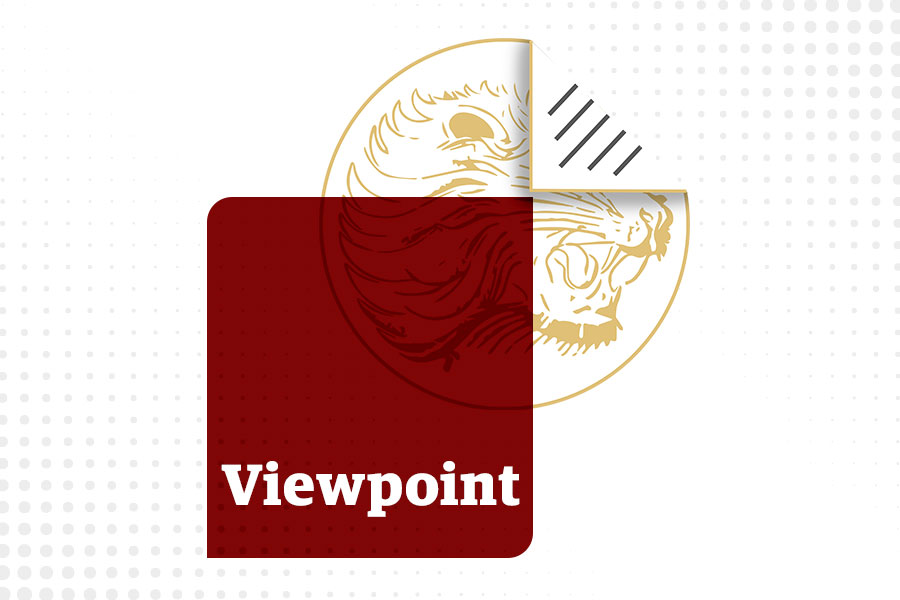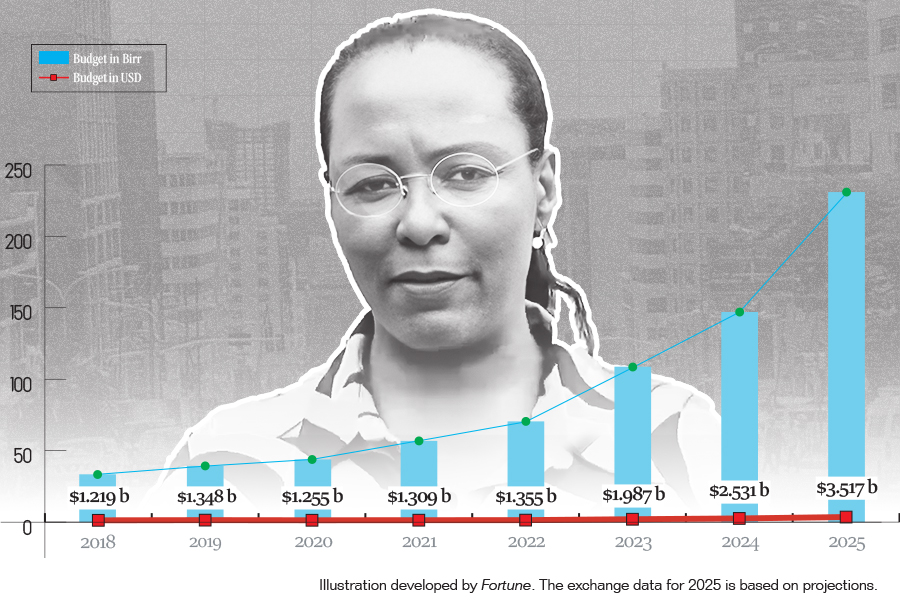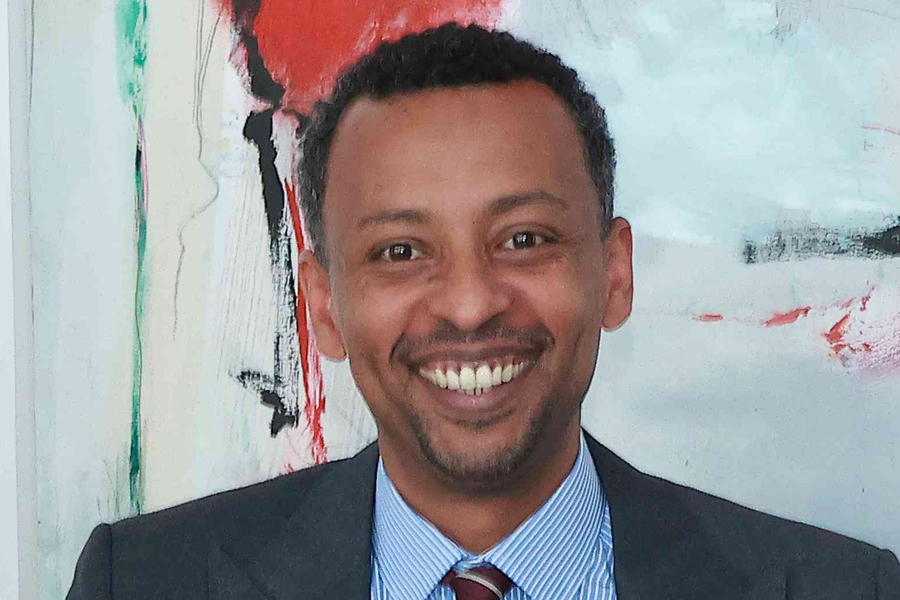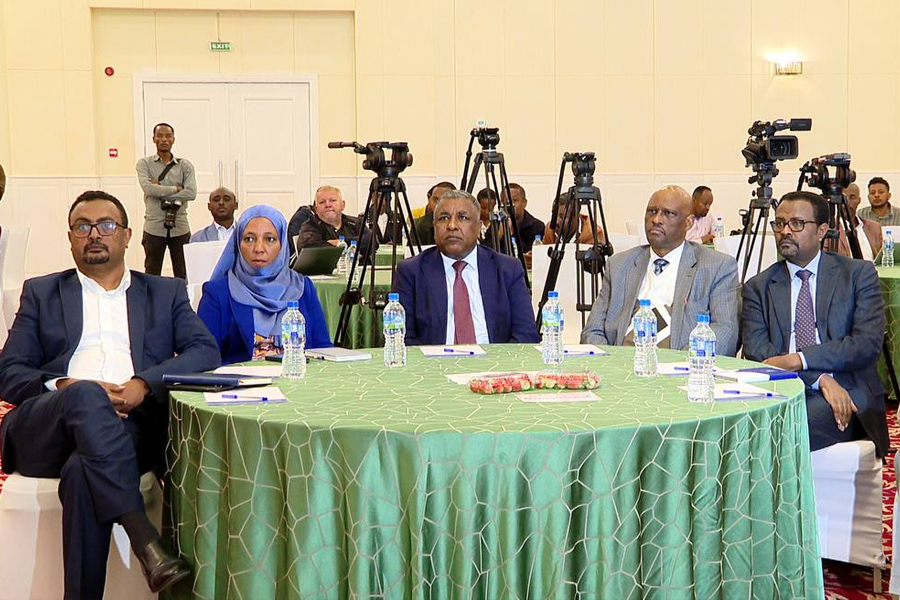
Radar | May 14,2022
Mar 16 , 2024.
In a striking move that has rattled the corridors of Ethiopia's export sector, the Ministry of Trade & Regional Integration (MoTRI), under the aegis of Gebremeskel Chala, has imposed a new directive on exporters. They must now align their international sale prices with or surpass those set on the Ethiopian Commodity Exchange (ECX) floor.
At first glance, this policy might appear as a robust strategy to beef up the country's dwindling foreign currency reserves. However, a closer examination reveals that it is a precarious manoeuvre, overwhelmed by potential pitfalls that could deter export earnings, exacerbate imported inflation, and, perhaps most troubling, unveil a profound lack of strategic coherence within the ruling Prosperity Party's economic policies.
The Prosperity Party (PP), steered by its Chairman, Abiy Ahmed (PhD), has ostensibly toyed with the principles of economic liberalisation and the crucial role of entrepreneurship in driving the country's growth. This view could have been inspired by the ethos of the "Entrepreneurial State," a concept championed by economist Mariana Mazzucato, who argues for a substantial role of the state in galvanising economic growth while safeguarding capitalism from its inherent vices.
The federal government unveiled its Homegrown Economic Reform Agenda in late 2019.
It was meant to be a short-term strategy steered by Eyob Tekalegn (PhD), state minister for Finance. Supported by a substantial three-billion-dollar lifeline from the International Monetary Fund (IMF), this ambitious plan sought to overhaul the macroeconomic landscape by privatising state behemoths, liberalising the forex regime, and enhancing sectoral synergies. However, the initiative has faltered, beleaguered by the unforeseen onslaught of a global pandemic, the devastating toll of civil war in the north, and a mounting debt crisis that has sapped its vitality.
Never mind that Fistume Assefa (PhD), minister of Planning, has her edition of a playbook for economic development dubbed 10-year growth strategy. How and whether Eyob's plan is part of this strategy remains in obscurity. However, the misadventure has laid bare the absence of a cogent policy blueprint underpinning the Prosperitians' governance, a drawback that casts a long shadow over their half-decade rule.
The Prosperitians' policy oscillations, swaying between economic liberalisation, social conservatism, and political wilderness, betray a deeper ideological malaise—the absence of an overarching economic philosophy. The ideological vacuum undermines the government's policy effectiveness and engenders a climate of uncertainty that stifles economic dynamism and businesses' bets on it.
The recent edict by the Ministry of Trade & Regional Integration displays such policy disarray, stemming from a dire lack of strategic clarity that could guide cohesive and effective governance. The scenario is further compounded by Ethiopia's precarious position at the crossroads of a macroeconomic quagmire, demanding an urgent recalibration of its policy compass to steer the country towards stability and growth.
As outlined in the International Debt Report, Ethiopia's external debt profile illustrates its economic tableau.
Classified among the World Bank’s International Development Association (IDA)-eligible countries, Ethiopia has witnessed a significant swell in its external debt stock, escalating almost threefold in a decade to 27.7 billion dollars by mid-last year. The surge is part of a broader trend where the escalating debt burden reached 1.1 trillion dollars across low- and middle-income countries, raising alarm bells over their debt sustainability and servicing capabilities. Ethiopia's predicament is symbolic of this distressing trend, with its debt servicing obligations mushrooming from less than half a billion dollars in 2012 to over two billion dollars a decade later.
Confronting this daunting challenge requires a concerted effort to engage with multilateral and bilateral creditors within frameworks such as the Common Framework for Debt Treatments. Such initiatives offer a glimmer of hope for debt-laden countries by facilitating coordinated support and restructuring agreements. For Ethiopia, sailing through these turbulent financial waters requires a judicious blend of diplomatic acumen and strategic foresight to secure favourable terms that can pave the way for economic recovery and sustainable growth.
Amid these complexities, the ongoing negotiations with the IMF emerge as a critical juncture. The Fund's insistence on a raft of policy reforms—including liberalising the foreign exchange market, budgetary discipline, and curtailment of off-budget expenditures—demonstrates the imperative of adopting stringent measures to restore macroeconomic equilibrium. The successful culmination of these talks could unlock a vital infusion of funds from the IMF and other international partners who pledged to inject much-needed liquidity into Ethiopia's parched economy.
The price Ethiopians will have to pay for this, if the talks with the IMF concluded at the end of this month, is to see the value of the Birr plummet in the official rate, an attempt to reflect the rate the parallel market offers. It is hoped, against all hopes and experience, that such a painful pill will cure the economy from its distortive state.
However, while crucial, these interventions are palliatives to the deeper malaise afflicting economic governance.
The absence of a coherent ideological framework renders these measures transient solutions, lacking the transformative potential to fundamentally rebalance the macroeconomy. The Prosperitians' dalliance with an eclectic mix of policies, absent a clear philosophical anchor, portends a precarious future. Ethiopia's quest for economic resurgence and stability hinges on a paradigmatic shift towards a more integrated and principled approach to policy formulation.
This imperative transcends mere economic calculus, extending into the political and social domains.
The quest for economic well-being is deeply intertwined with the political quagmire that grips the country. Aspirations for growth and opportunity permeate the collective consciousness, and these ambitions are tethered to a broader spectrum of public goods that the state is duty-bound to provide. Foremost among these is the provision of security, both individual and collective, a responsibility incumbent upon those at the political helm of political power, regardless of their pathway to power.
The spectre of economic stagnation looms large in a country beleaguered by internal strife, where the question of state legitimacy hangs precariously, and public discontent simmers dangerously close to insurrection. Ethiopia stands at a critical juncture as its societal fabric is strained by acute polarisation. The imperative for its leaders cannot be more apparent. They must steer the country away from the brink of disaster in a manner reminiscent of a careful navigation away from an iceberg, much like the ill-fated Titanic.
This task demands a departure from the conventional wisdom that sees force as the primary means of resolving disputes. The civil war in the Tigray and adjacent regional state, ignited in 2020, should serve as a regretful reminder of the limitations of military might. Instead, Ethiopia’s path forward requires embracing negotiation and compromise, recognising that a state's strength lies in accommodating its diverse constituents through settlement rather than conquest.
The calls for constitutional amendment echo across the political terrain, a familiar refrain among a myriad of factions. Grievances about marginalisation during the initial constitutional process, alongside demands for amendments to address various concerns, illustrate the widespread discontent. Establishing an assembly for constitutional reforms — characterised by inclusivity and sincerity — could provide a critical first step towards detoxifying the political environment.
The analogy of a patient in dire need of hemostasis aptly describes Ethiopia’s current predicament. The cessation of hostilities in regions engulfed by conflict, particularly the federation’s largest states, must precede any attempt at national healing. A platform for constitutional reform dialogue offers hope, a potential avenue towards achieving the twin aspirations of security and economic opportunity that can transcend Ethiopia’s divisive boundaries.
PUBLISHED ON
Mar 16,2024 [ VOL
24 , NO
1246]

Radar | May 14,2022

Fortune News | Aug 05,2023

Life Matters | Jul 18,2021

Fortune News | Dec 04,2022

Fortune News | Feb 02,2019

Commentaries | Oct 02,2021

Viewpoints | Apr 22,2023

My Opinion | Jul 18,2021

Fortune News | Dec 19,2020

Commentaries | Jun 22,2024

My Opinion | 108821 Views | Aug 14,2021

My Opinion | 105219 Views | Aug 21,2021

My Opinion | 104030 Views | Sep 10,2021

My Opinion | 103320 Views | Aug 07,2021

Jul 13 , 2024 . By AKSAH ITALO
Investors who rely on tractors, trucks, and field vehicles for commuting, transportin...

Jul 13 , 2024 . By MUNIR SHEMSU
The cracks in Ethiopia's higher education system were laid bare during a synthesis re...

Jul 13 , 2024 . By AKSAH ITALO
Construction authorities have unveiled a price adjustment implementation manual for s...

Jul 13 , 2024
The banking industry is experiencing a transformative period under the oversight of N...

Jul 21 , 2024 . By TIZITA SHEWAFERAW
Mayor Adanech Abebie's Administration faced an audit report that unveiled a startling...

Jul 21 , 2024 . By AKSAH ITALO
Brook Taye (PhD), director general of the Ethiopian Capital Market Authority, has tak...

Jul 21 , 2024 . By AKSAH ITALO
Ethiopia's horticulture, a major source of foreign currency and employment, is facing...

Jul 21 , 2024 . By AKSAH ITALO
Commercial banks are now permitted to acquire equity shares in capital market service...